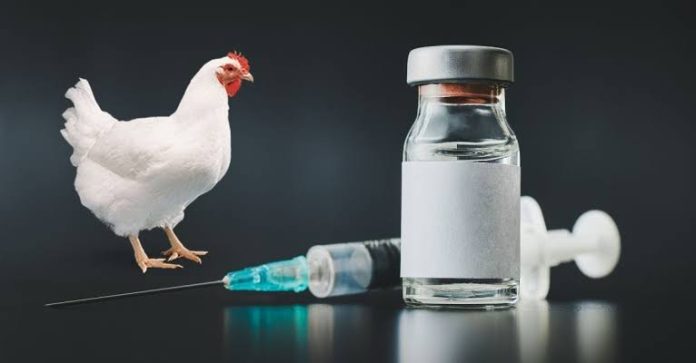16 Comprehensive Ways of Preventing Vaccination Failure Part Two
9. Use of Booster dose
Some of the vaccines require a booster dose for successful immunization. The booster dose is required after 10–20 days of the initial dose. The initial dose is required for priming of vaccine, while the booster is required for maximum protection against antigen. The lack of booster dose results in low antibody titers. As a result, vaccine failure may result. It has been documented that the priming with live attenuated vaccine followed by booster of killed vaccine and second booster with live vaccine provides best protection against Newcastle disease. However, subsequent inoculums are also required at regular intervals.
 Learn More
Learn More
10. Stress-free birds
All types of stresses mentioned earlier should be avoided before administration of vaccines to poultry birds. The temperature of the environment and sheds should be normal before vaccination. Moreover, the birds should be in a good physical condition before administration of vaccines. Stress suppresses the chicken’s immune response, and during these conditions of stress, birds should not be vaccinated. The stress on birds can be minimized by the use of vitamins and minerals in drinking water before, during and after vaccination.
READ ALSO: Practical First Week Management of Turkey Poults Part Two
11. Deworming before vaccination
The adult birds may be dewormed before vaccination at least 15 days before injection of vaccine; moreover, diseased birds should be treated properly and be given vaccines after recovery. Only healthy flocks should be vaccinated.
12. Feeding of Balanced feed
Nutrition plays a significant role in the development and function of the immune system. The commercial feed offered to poultry should be analyzed regularly and the level of toxins be checked on a regular basis. Especially in summer and humid environment conditions, the fungus grows on feed ingredients and fungal metabolites gain entry into the body of poultry, and as a result, they cause immune-suppression, decreased growth, hypersensitivity and decreased feed intake.
13. Maturity of bird
In poultry birds, age is considered for the vaccination of bird; receptors for different pathogens develop in the body of poultry bird at specific ages, so the vaccination is done keeping in view the age of the bird, that is, ND + IB vaccine is done on the first day of birth. Similarly, the Marek’s disease vaccine is done immediately after hatching of chicks in the hatchery machine. The IBD (infectious bursal disease/Gumboro) vaccine is done at 10–12 days of birth and booster is given after 10 days. In broiler birds, the hydropericardium syndrome (HPS)/Angara vaccine is done at 21–23 days of birth. So, the age of the bird is very important for vaccination. The domestic/rural poultry requires injection of ND after every 2–2.5 months.
READ ALSO: Basic Requirements for Organic Poultry Farming
14. Consideration of maternal antibodies
As the breeder/parent flocks of poultry are routinely vaccinated against viral diseases which are prevalent in the area, the newly hatched chicks have maternal antibodies in their blood. It is suggested that the bird should be a minimum 11 days old at the time of administration of IBD vaccine and 7 days old at the time of administration of ND vaccine.
15. Preparation of flocks for vaccination
The poultry flocks are properly prepared for administration of oral vaccines. The birds are offered feed and are kept off water for 2 h before administration of vaccines. The drinkers are properly washed and the vaccine is given to birds. The number of drinkers is increased in order to ensure that all the birds drink vaccine water. The water should be provided to birds in such a way that birds drink all the vaccine water within 2 h. The birds are regularly moved during this process so that all the birds drink water containing the vaccine virus. The stabilizers and coloring agents can be added in the vaccine. A tinge of the coloring agent can also be noticed on the beak of birds which indicates the drinking of water.
16. Vitamin and mineral supplementation
Vitamin and mineral supplements help to develop immune response by acting on the immune cell or by changing metabolic or endocrine functions; as a result, the antibodies are produced in the body at a faster rate and a protective level of antibodies is gained in a shorter time. Vitamin E and selenium have a role in modulating the immune response and have shown good results in preventing vaccine failure. Research conducted shows that vitamin E may enhance immune response to antigens in cockerels but excessive vitamin E may depress specific immune responses. Administration of excess vitamins, amino acids, minerals and their combinations enhance the disease resistance by stimulating humoral and cellular immunity and phagocytosis]. Optimal vitamin nutrition is required for optimal immune response and disease resistance. The addition of higher levels of vitamin A, C, E and Selenium ensures better immune response of birds to vaccination and reduces the chances of vaccination failure in broiler poultry flocks. Studies have suggested that the nutrient levels that are adequate for growth and feed efficiency may not be adequate for normal immunity for maximizing the resistance to disease.
READ PART ONE HERE
















